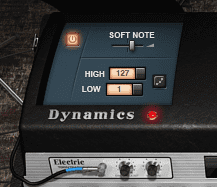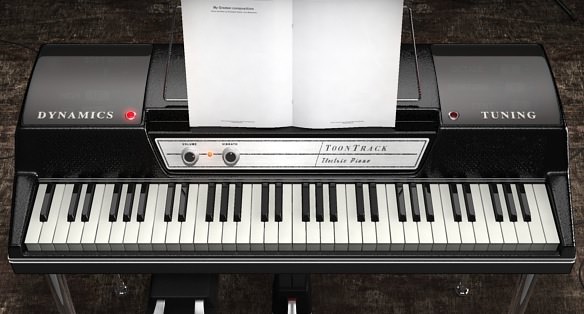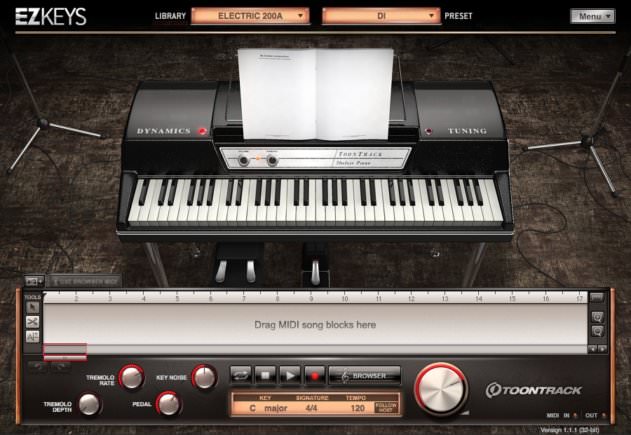Toontrack’s latest addition to the EZkeys series focusses on electric pianos. Oliver Curry puts it to the test.
Since their inception in the early 1970s, the trademark tones of Fender Rhodes and Wurlitzer electric pianos have been heard across countless genres, from jazz and soul to house and hip hop.
It’s the sampled sounds of these two iconic pianos which make up the latest addition to Toontrack’s EZKeys series, Classic Electrics. Classic Electrics runs in Toontrack’s own EZkeys engine which comes in 32- and 64-bit VST, AU and RTAS formats, as well as working as a standalone module.
In addition to the sample-based instruments themselves, there are optional effects and ambiences built into the interface, including a DI emulation, phaser and rotary speaker effect. As with the other EZkeys products, Classic Electrics also comes with a large number of MIDI files to aid songwriting, which can be imported into your DAW or played back directly via the EZkeys interface.
Classic
The samples are very functional and immediately playable, the MK1 in particular. Each piano comes with a small number of optional effects and ambience settings with a number of basic, adjustable parameters, the Leslie
-inspired rotary speaker setting on the MK1 a particular favourite, the distortions perhaps not so effective but that could be a matter of taste. For DAW users and producers, the majority of the on-board effects – in particular the distortion and ambiences – are easily and perhaps best reproduced in a host application, but for standalone users their simplicity and accessibility will be appreciated.
With so many sample libraries it seems standard procedure to compress everything and make it as loud as possible. Some electric pianos (real or virtual) can also suffer from a lack of dynamic expressive range, so it’s good to hear velocity layers in use here and to see the inclusion of adjustable velocity curves to suit individual playing styles.

Toontrack’s promotion of EZkeys focusses heavily on the intended songwriting and MIDI aspect of the series, something that does seem to be aimed largely at those who are just getting started with the idea of writing music. The included documentation also offers an introduction to basic music theory, briefly addressing topics such as key signatures and the cycle of fifths, which is a nice touch.
EZKeys’ library of MIDI files, created by Toontrack’s session pianist, contains some great loops and progressions sorted into genre, verse/chorus, etc. These can be selected, combined, transposed and played back from within the EZKeys engine, although these functions will most likely be redundant for anyone familiar with MIDI sequencing or DAW usage in general.
Audio Player Audio PlayerConclusion
For some, EZkeys’ whole approach to songwriting will be seen unfavourably as toeing the line between creativity and a lack of ability. However, the fact remains that MIDI files are potentially far more customisable than using a sample, and the MIDI files could easily be the backdrop to a track rather than providing an entire song.
MIDI library and songwriting tools aside, the EZkeys Classic Electrics instruments are solid sounding examples of two great electric pianos which will fit nicely into any producer’s library. Classic Electrics will set you back £111, but if you already own another EZKeys product you can buy it as an expansion for half the price and just add the library to your existing EZKeys engine.
The Verdict
Price: £111
Purchase: Toontrack EZkeys Classic Electrics
The Final Word
A solid if slightly unexciting electric piano ROMpler with useful MIDI patterns included.

